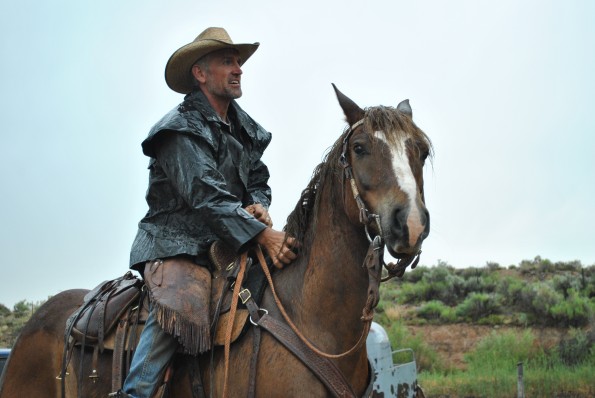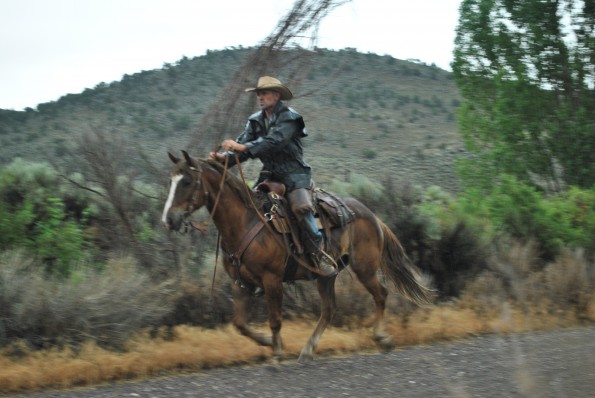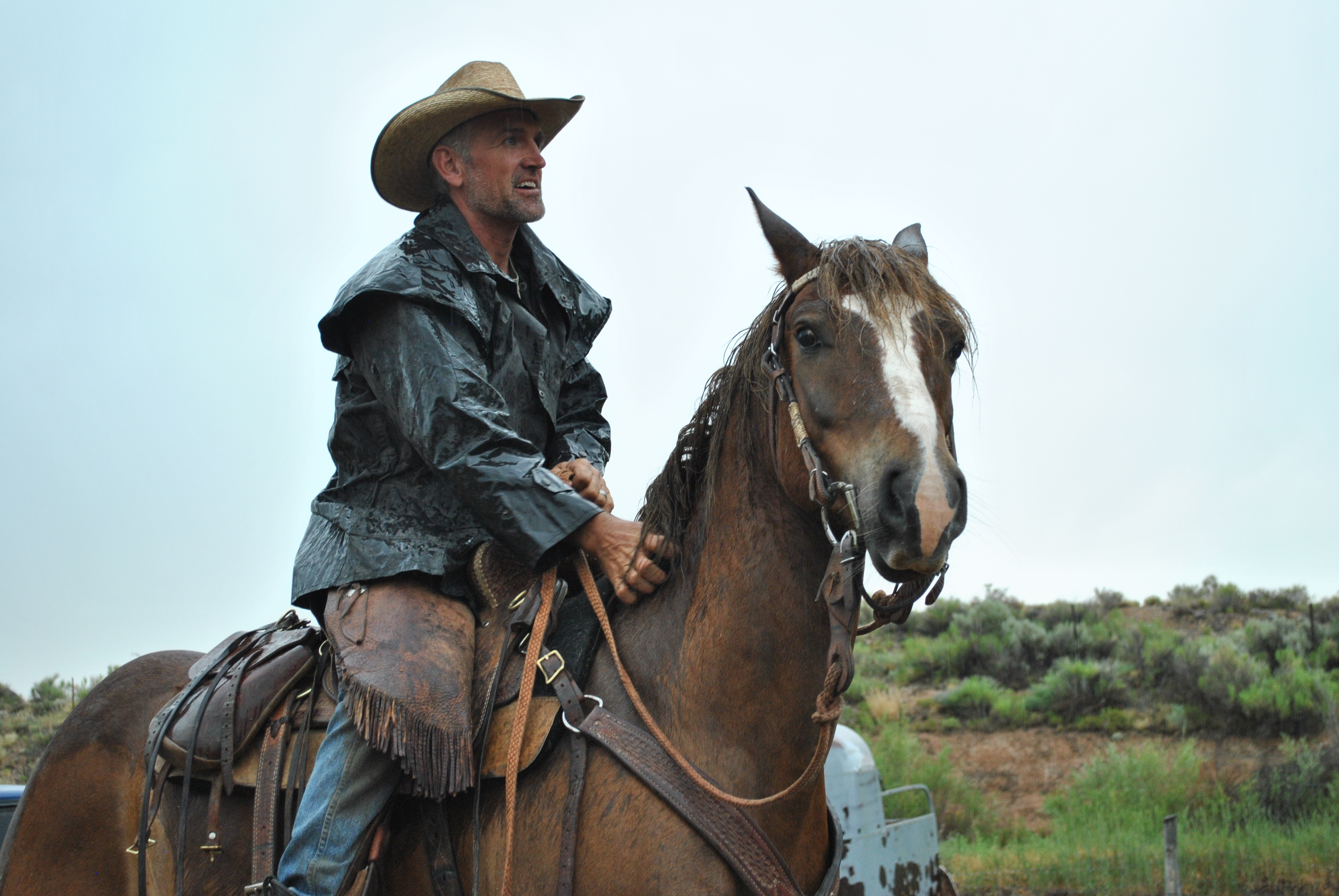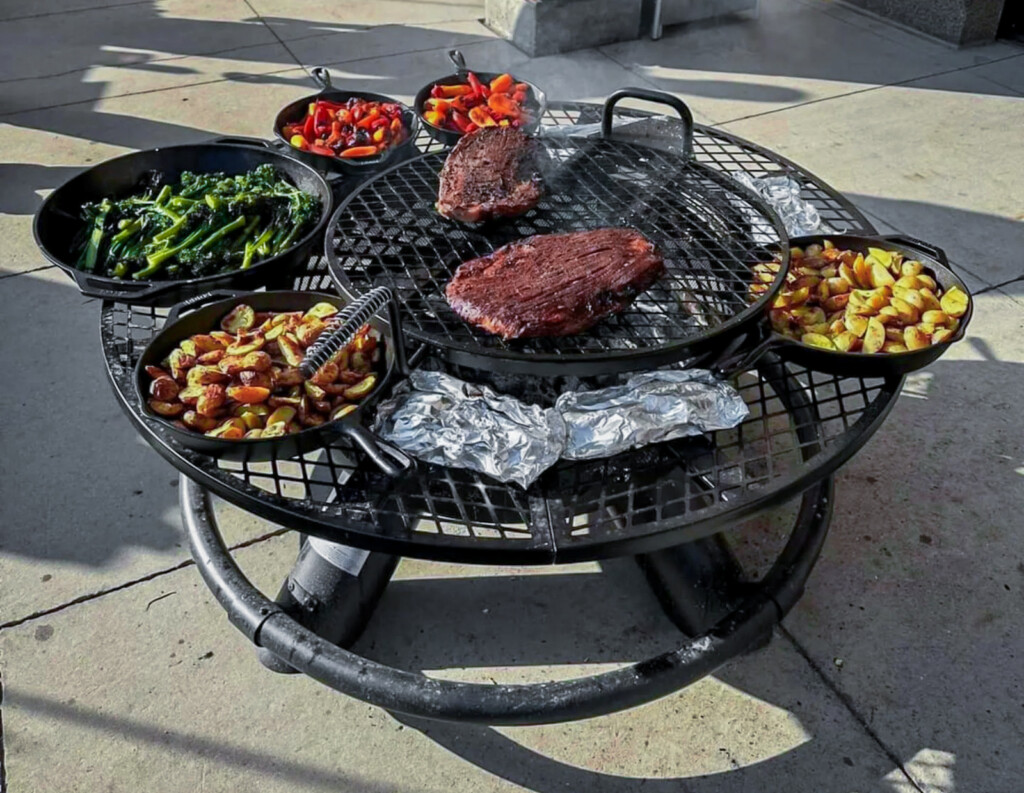 The pursuit of happiness comes in all forms, including how one St. George man made his dreams come true after having his house foreclosed and losing everything.
The pursuit of happiness comes in all forms, including how one St. George man made his dreams come true after having his house foreclosed and losing everything.
“I remember being in the city and working and the stress, and I was wondering how I was going to just get happy. How am I ever going to achieve happiness?”
West Taylor is sitting with us under a leaky outdoor aluminum patio cover at his small ranch in Loa, Utah. Rain is pouring. West is lean, fit and rugged. He looks extremely comfortable wearing a cowboy hat and cowboy boots with spurs, as if he has done this his whole life.
It’s hard to imagine that just three years ago, this same man was a St. George businessman, earning $10,000 per month living in a seven-bedroom house on the golf course.
“It was like I had to somehow try to buy happiness with money. So I was always trying to make more and more money.” After a brief legal battle to try to save his business after he received a tiny buyout offer by the developer he had been partnering with for seven years, Taylor says he decided to just give it all up. The stress, the fight and the suburban dream of trying to, “hit the motherload of making lots of money.”
Today West Taylor makes around $15,000 per year. And he says with a smile on his face that losing everything—his job, his home, all his toys, even their cars—was the best thing that could have ever happened to him. Because now he is living the life he had always dreamed about. “Look where I am at; look at the door that has been opened. I can almost greet that with a smile and a hug and say, ‘Thank you.’ Because without that I would still be down there wishing I were here. Wanting to have this, never having the guts to bet the farm and go and do it.”
“Dad, flash flood,” his son, Swede, comes to tell us. On our way here, roads were washing out, and crews were setting up to remove debris from culverts. July is the rainy season in Wayne County. This all comes as great news to the Taylors who need to save every penny. Now there is no need to buy hay for the winter for his eight rescue horses, which he adopted as wild mustangs. Taylor makes his living mostly has as horse trainer.
“You can live out here on a lot of nothing. You can do a lot of trades, you can do a lot of barter back and forth with local people. And that’s fun. That that’s just cool because it’s just out of necessity, because there isn’t a lot of cash-flow coming out of the county. So everybody out here is just, ‘So how do we make things work?’”
Taylor makes things work by taking in troubled horses and working with them. He has honed his skills in helping horses that “live completely on their instincts– fight or flight, learn to trust humans again, and settle into domestication. He anchors his horses with their hind leg tied to a rope, where they learn to trust that they will not be eaten by predators. They need to learn to trust West and others as they move in to show affection. But this learning process doesn’t come without a price. Last year Taylor’s face was brutally smashed in when one of the horses was cornered in a canyon. For months he was unable to work, but the community all stepped up and helped provide for his family.
West says that the connection he has developed to the horses has shaped him into a new man, and despite the dangers. “This is who I am, and this is what I do.” Taylor now works with a veterans program and helps men suffering from post traumatic stress disorder. The wild animals slowly trust humans again who share the same basic emotion as soldiers returning from combat zones. So how has his wife and four kids adapted to this new life?
West says that one of the greatest things about living in Wayne County as opposed to St. George is the impact he has seen it have on his children. His son Swede spent about a half hour describing his life. The blonde, sun-tanned nine-year-old told us of his “old school” ways of doing things, and how he is pretty much just a country kid who likes to ride horses with his dad. He tells us about his new rabbits, his goats, their chickens and how he takes care of them.

West elaborates, “Yeah, he feels pretty good about who he is because he has never been told that he is not good enough by any group or society. He hangs out with me and mom all of the time. He is on the road with me when I am doing clinics. He helps me feed and train horses. So he is very confident in just being himself.”
West says that he has also noticed a big change in his older 17-year-old son who has gained a lot of confidence. He attributes it to the great school system. “Before he wouldn’t look at you. He was very introverted, and he wouldn’t talk. Now I would say he is a totally different kid. Last week, he hauled fifteen tons of wheat with his buddies, because that was his job. It took everything he had and he just got it done.”
“I had an uncle that taught me a great lesson. He was the top salesman at R.C. Willey, and every year he would save up more and talk about his plans to retire here. He bought his horses, his trailers, his snowmobiles, all his tack. Everything was ready to come down here and retire.” But, West explains, the summer before retirement on a camping trip he died of a heart attack. “He could have been enjoying all that retirement the whole time. And so I took a great lesson from that. I want to live every day like I’m retired. And I am. I’m done. This is what I’m doing.”






